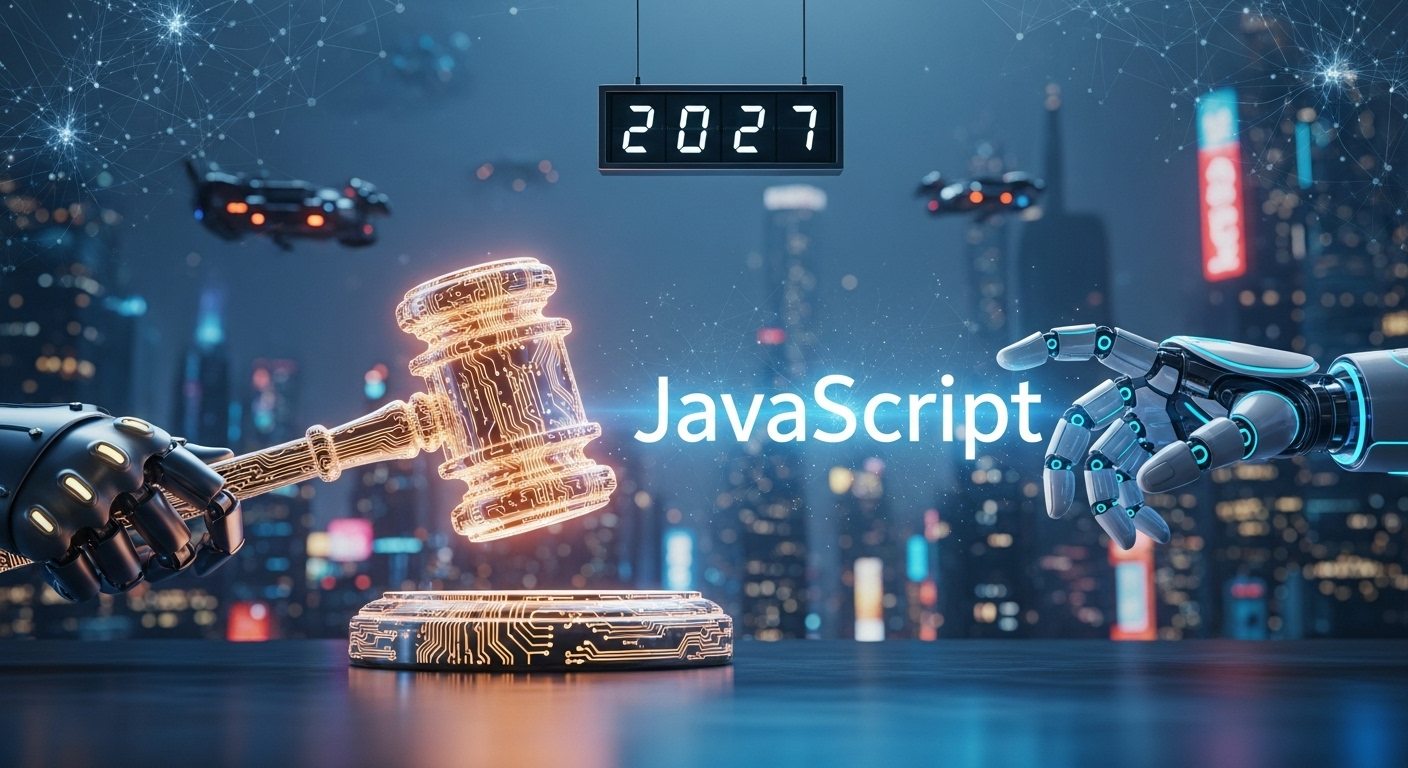The JavaScript trademark is at the center of a surprising story about one of the world’s most widely used programming languages, JavaScript.
JavaScript powers millions of websites, applications, and enterprise systems. But here’s a surprising fact: the JavaScript trademark is legally owned by Oracle Corporation—a company that neither created it nor maintains its ongoing development.
This raises a critical question for the developer community: Should a corporation with little involvement in the JavaScript ecosystem control the JavaScript trademark?
The History of the JavaScript Trademark and Oracle’s Ownership
In 1995, Brendan Eich created JavaScript while working at Netscape. Originally named Mocha and then LiveScript, Eich renamed it JavaScript as part of a marketing agreement with Sun Microsystems to leverage the popularity of Java at the time.
Although Sun didn’t contribute to JavaScript’s technical creation, it secured the trademark for the name “JavaScript.” When Oracle acquired Sun in 2009, Oracle inherited the trademark, giving the company full legal control over the term.
This explains why developers use the term ECMAScript in formal contexts instead of JavaScript. Using “JavaScript” directly could violate Oracle’s trademark.
Ryan Dahl and the Fight to Reclaim the JavaScript Trademark from Oracle
In 2022, Ryan Dahl, the creator of Node.js and co-founder of Deno, led a campaign to challenge Oracle’s control of the JavaScript trademark. Dahl argued that Oracle’s trademark casts a “dark cloud” over the language and hampers its proper use.
His primary points of contention are:
-
Genericness: The term “JavaScript” has become a generic term for the language itself, not an Oracle product.
-
Abandonment: Oracle does not market or maintain any product under the name “JavaScript.”
-
Fraudulent Renewal: Oracle’s 2019 trademark renewal included misleading evidence. Oracle used screenshots of Node.js (which Dahl created without Oracle’s involvement) as proof of the trademark’s ongoing use in commerce.
Dahl’s open letter garnered widespread support, including from JavaScript’s creator, Brendan Eich, and other influential figures in the tech community.
The USPTO Case: JavaScript vs. Oracle
In November 2024, Deno Land filed a petition with the U.S. Patent and Trademark Office (USPTO) to cancel Oracle’s JavaScript trademark. Since then, the case has seen several key developments:
-
January 2025: Oracle confirmed that it would not voluntarily relinquish the trademark.
-
June 2025: The USPTO dismissed the fraud claim, ruling that Node.js evidence did not prove intentional deception.
-
August 2025: The USPTO asked Oracle to respond to claims of genericness and abandonment.
-
September 2025 – 2026: The case entered the discovery phase, where both sides will exchange evidence.
-
Early 2027: The court is expected to issue a final decision after hearings and closing arguments.
Why the JavaScript Trademark Battle with Oracle Is Crucial for Developers
At first glance, trademark law might seem disconnected from day-to-day coding. However, the outcome of this case could have significant consequences:
-
Freedom of Use: Developers, educators, and event organizers could freely use the term “JavaScript” without legal risk.
-
Standard Naming: The ECMAScript specification could finally be known as the “JavaScript Specification.”
-
Community Identity: Conferences, courses, and publications could more easily adopt a unified, recognizable brand for the language.
Ultimately, this case is about more than just legal details—it’s about who gets to control the identity of the JavaScript language and its place in the tech world.
ECMAScript vs. JavaScript: Understanding the Trademark and Legal Issues
Many people still confuse ECMAScript with JavaScript, so let’s clear that up:
-
ECMAScript: The official language specification, maintained by ECMA International.
-
JavaScript: The trademarked name, owned by Oracle, often used to refer to implementations of the ECMAScript standard.
If Oracle loses the trademark, we could finally resolve the naming confusion, bringing clarity and consistency to the language’s identity.
Looking Ahead: What’s at Stake?
As the trademark battle continues, the developer community is closely watching. Whether or not the USPTO cancels the trademark, the pressure on Oracle is building.
If Deno Land’s petition succeeds, it could mark a historic moment: JavaScript would return to the public domain, and the community would regain control over the language’s identity.
Until then, developers around the world continue to shape the web’s future while the trademark issue remains unresolved.
Key Takeaways
-
Oracle inherited the JavaScript trademark from Sun Microsystems in 2009.
-
Ryan Dahl and Deno Land are challenging Oracle’s ownership of the trademark.
-
The case centers around issues of genericness, abandonment, and fraudulent renewal.
-
The final ruling is expected by 2027, potentially freeing the term “JavaScript” for public use.
-
The case underscores the tension between corporate control and community-driven technology.
